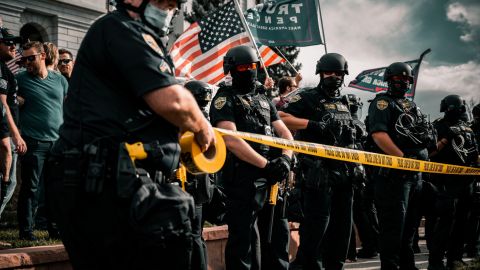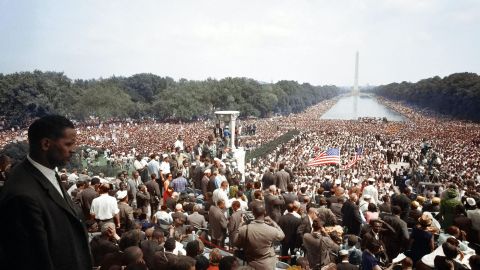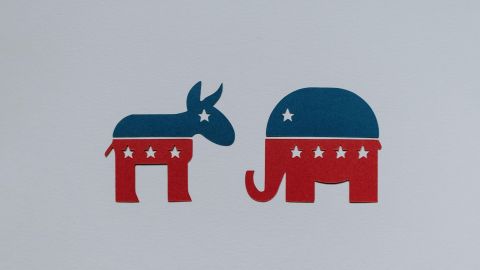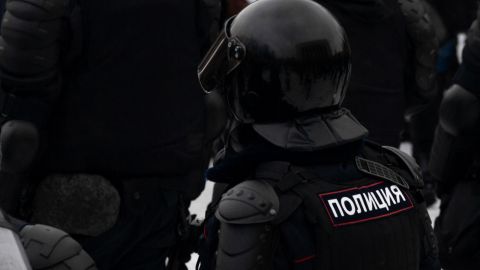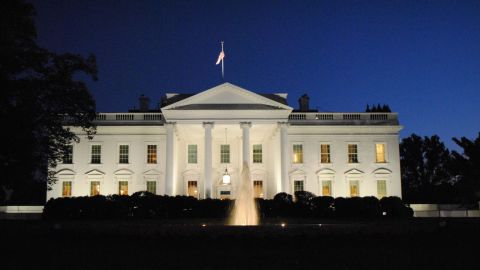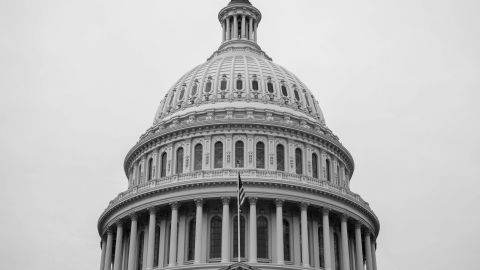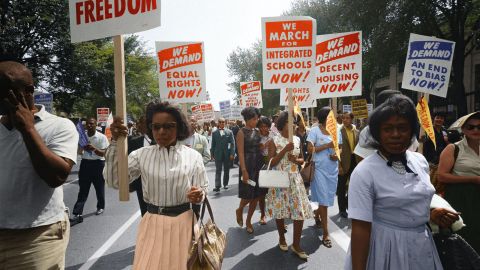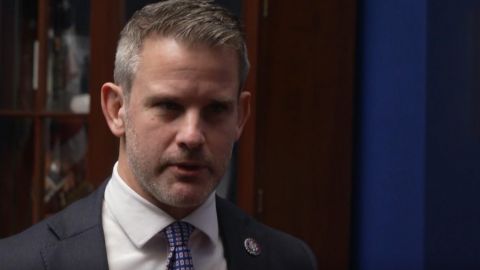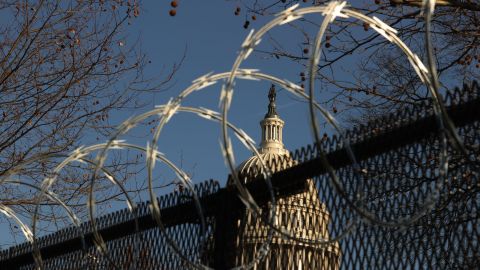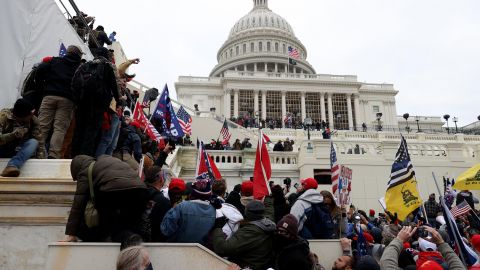- Both political violence and honestly misinformation
were both much more common in the early decades
of American democracy.
We had yellow journalism, right?
We had these, these newspapers that went out
and absolutely slandered people from the other party
and candidates from the other party.
And then, we kind of went through this era
of respectable journalism and giving equal time
to both sides and having very few, relatively few
sources of information and now we're kind of,
I think back in the wild west of yellow journalism
and polarized politics where the internet tells us
whatever we want to read and partisan media tells us
who we are.
Partisan media is really efficient at telling people
this is what you are as a Republican,
this is what you are as a Democrat.
This is us, this is them.
So, I think conflict and upheaval and even violence,
I think go hand in hand with a kind of lawless
informational space where where people don't really know
the same truth, right?
They don't live under the same reality
and so their conflicts can be much bigger
because they can imagine all kinds of things
about the other people.
- 15 years ago, one might have thought that social media
would have a democratizing effect
and a lot of people did think that
but we have to remember how unrepresented
the conversation on social media can be.
So the vast majority of posts on Twitter
are put up there by a tiny minority of people on Twitter.
And so you can get a very misleading impression
of what people are concerned about,
what they're thinking, just by looking at that.
And then there's this feedback effect
where a lot of my fellow journalists spend too much time
on Twitter and then they amplify that misleading picture
of what the country is like to their readers
and their viewers and it just becomes
a kind of hall of mirrors.
- When the Obama campaign used these tools to such effect
the Republican party definitely noticed
and the kind of far right fringe definitely noticed as well.
So there was an immediate sense that
we have to catch up in this technological arms race.
And there was also a sense
among the white nationalist fringe that,
again, this is a powerful moment for recruitment
just like 9/11 when people felt like
they had been breached by a foreign enemy.
A lot of people felt with the first black president,
Okay this is a really salient moment
for white racial consciousness
which is obviously a dangerous thing in America.
So the white nationalist groups, I think,
figured out right away that it's one thing
to talk about race, it's one thing to say the Clintons
or the Democrats are giving too many handouts
to African Americans or you should worry
about affirmative action
but suddenly when you have a black president
it's this very immediate stark visual reminder
that your country is being taken from you.
This was a kind of a messaging godsend
for the white supremacist movement.
This was in many ways the thing they had been fearing.
- Oh, I think social media is a huge problem.
And it's a huge, it's like gasoline on the fire.
And I think the big social media platforms
need to help own this problem and need to help fix it.
And they need to help fix it by dealing with the problem
of disinformation that's spread on the platforms.
And disinformation is intentional, misleading information.
It's not mistakes and facts or things of that sort.
It's really using information as a weapon.
And that's what we see going on.
- I don't know if we are the most divided
we've ever been as a nation.
I think we are the most plugged in
and attuned and able to listen to everyone's opinion
about their political position
and their thoughts and their fears.
So I don't know if we are in an era of unusual divisiveness
rather than an era of unusual noise about that divisiveness.
And I think that increasingly what we have
is an opportunity if we have these new channels
to listen to each other, one would hope
that we would have leadership that would say
Why don't we use those channels to talk about the things
that we want the most for ourselves?
Why don't we use those channels to talk about our fears
and how we wanna care for each other?
But unfortunately, I think we have used technology
as an opportunity to amplify and to threaten
and to scare each other.
And so what does this mean for us as people
who want to see democracy come alive?
I think that we have to really weigh the hard work
of making democracy work in an age in which fear tactics
and scare mongering and lying
also are effective tools for mobilizing people.

